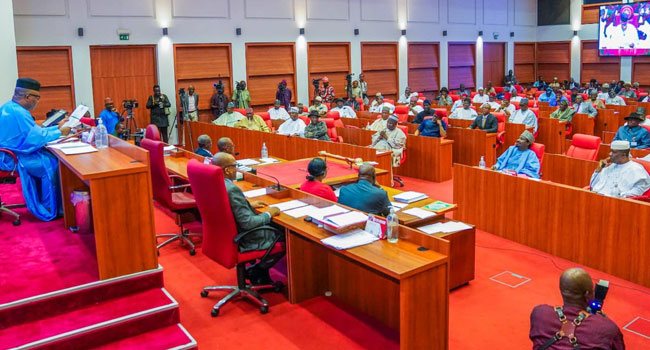The Senate has taken a major step toward prohibiting the recruitment of persons under 18 into the Nigerian military, passing the Armed Forces (Repeal and Re-enactment) Bill, 2025 for second reading.
The provision, which bars the enlistment of minors, brings Nigeria’s military practices in line with the Child Rights Act (2003), the UN Convention on the Rights of the Child, and the African Charter on the Rights and Welfare of the Child.
Sponsored by Senator Abdulaziz Yar’Adua (Katsina Central), the bill seeks to repeal the Armed Forces Act, 2004 and replace it with a framework that is constitutionally compliant and better suited to contemporary security and governance needs.
Leading debate on the bill, Yar’Adua said the reform was long overdue, noting that the current law—originally rooted in a military decree—no longer reflects the demands of democratic oversight or modern military operations.
“Our Armed Forces are a symbol of national unity and pride, but the laws guiding them have not evolved at the same pace as our democracy. This bill rebuilds the military’s legal foundation to reflect justice, professionalism, and respect for human rights,” he said.
The proposed legislation introduces far-reaching reforms. It expands the definition of military offences, prescribes proportionate punishments, and safeguards the independence of courts-martial by criminalising interference from superior officers, an important check against abuse of power.
For the first time, the bill will allow legally qualified military officers to represent the Armed Forces in civil courts. It also establishes a standing litigation fund to ensure timely and efficient handling of military-related legal matters.
In addition, the bill replaces outdated fines—some as low as N200 or N500—with percentage-based penalties tied to an offender’s salary, ensuring sanctions remain deterrent and economically realistic.
The reform clarifies the military chain of command and strengthens civilian oversight. It vests day-to-day operational command of the Armed Forces in the Chief of Defence Staff, under the authority of the President, in accordance with Section 218 of the Constitution. This eliminates ambiguities in reporting lines and reinforces the principle of civilian supremacy—an essential element of any constitutional democracy.
The bill has been referred to the Senate Joint Committee on Army, Navy, and Air Force, which is expected to submit its report within four weeks.


